Rivers in Iraq suffer from many serious environmental problems that have a lot of devastating effects on the lives of thousands of Iraqis, as dams in Iraq and upstream countries cut off the natural flow of the Tigris and Euphrates rivers, which causes water scarcity in the southern regions of Iraq, also the poor water management and the unfair policies of the upstream countries, the misuse of water that is already limited, and the absence of waste management systems and water treatment plants that make much of the usable water highly polluted, in addition to climate changes that make the situation much worse, causing high temperatures and low rainfall, all contribute to the complication of water reaching those who need it.
Therefore, in conjunction with the International Day of Action for Rivers, March 14, Humat Dijlah in cooperation with 12 local and international civil society organizations and social movements in Iraq, launched the “Iraqi Water Week”, an initiative that seeks to shed light on the consequences of the climate change and unfair water policies from upstream countries and unserious water management from Iraqi government authorities, in addition to creating an opportunity to take time and think about how we use water, and urge the concerned authorities to find real plans to confront this dangerous crisis. The initiative ended on World Water Day, which is on March 22.
The main demand raised by the Iraqi Water Week initiative was “the right to have clean water.” Through this demand, activists expressed a lot of problems and challenges facing the Tigris and Euphrates rivers in their cities, and raised many demands, the most important of which is the necessity of negotiating with upstream countries, and to accept that The Tigris and Euphrates rivers are cross-border rivers and belong to all of the peoples of the Mesopotamia region, in addition to the demand for the equitable distribution of water at the local level and the solving of violations from the Tigris and Euphrates rivers.
Environmental activists from 17 Iraqi cities participated in this week’s activities. Humat Dijlah teams in these cities organized a lot of events and campaigns aim to raise awareness of the importance of water and the need to protect it, the most important of which were:
A New Environmentally Friendly Generation in Anbar
Humat Dijlah team in the city of Hit held an educational session for children and their families in the Happy Land Park. They talked about how to protect water and what are the dangers of plastic. They also showed environmentally friendly plastic alternatives, and the importance of using them. At the end of the session, the team carried out a clean-up campaign with the children who were excited about keeping their environment free from pollution and waste.

On the other hand, after they cleaned the banks of the Euphrates River from waste and plastics, the team of Al-Qaim city organized a protest to demand the protection of river water from pollutants and unfair water policies, despite the dusty weather and the difficulties they faced.
In the city of Rawa, the team organized a field awareness campaign; they met with people and told them about the importance of protecting water from excessive use and the need to protect the environment and rivers from pollutants and waste, in order to promote joint responsibility towards the environment.
The last event of the Iraqi Water Week in Anbar was a clean-up campaign for the banks of the Euphrates River organized by the team of Anah City, aimed to shed light on the neglect that the river in the city suffered from, by the related authorities and the lack of community awareness.

An Awareness Campaign in the City of Diwaniyah
A field awareness campaign was held by the team of Al-Diwaniyah city, during which the team met with the people of Sadr Al-Daghara area, which is located at the beginning of the river’s entry into the governorate. The campaign aims to enhance the value of joint responsibility towards the environmental reality of rivers, by educating people about the importance of protecting water, rationalizing its use, and protecting rivers from pollutants that are dumped in them.
People of Babylon Celebrate the Iraqi Water Festival
In the city of Hilla, Humat Dijlah team organized a festival at the Corniche of Hilla. The people called it the “Iraqi Water Week Festival.” The festival included an exhibition of paintings of birds that inhabit the Iraqi marshes and have been exposed to the threat of extinction and poaching; these paintings were made of plastic waste highlighting the harm caused to the animals by those thrown plastics in water. The festival also included an exhibition of pottery and heritage utensils made from palm fronds (wicker) to raise awareness of the need to use safe and environmentally friendly alternatives instead of plastic.

The festival was held in cooperation with the SEE team, who participated in a photographic exhibition, and with Mr. Aqil Al-Kawaz, who made pottery tools and gave them away to those present.
In another activity, and in order to the community’s need to raise awareness and promote the issue of protecting water from plastic waste, the team compared the number of water bottles used by an individual during one year to the reusable water bottle, to encourage the people to use the reusable water bottles, reduce the use of plastic materials and adopt an environmentally friendly lifestyle.
These two activities have been documented by many local media outlets, and according to that, Humat Dijlah team was hosted on Babel Radio to participate in “Bil Tafasil” program to talk about Humat Dijlah and its activities.

Protest in the Ancient Castle of Ashur
During the Iraqi Water Week, Humat Dijlah team in the city of Shirqat organized a cleaning campaign inside the ancient Assyrian Castle, which concluded with a discussion session, to talk about the importance of antiquities and heritage, and the need to keep them away from damage, they also talked about how to protect water, in addition to a vigil, when the team called for the protection of antiquities and our cultural heritage.
The team also organized a campaign to clean the shores of the Tigris River from garbage and plastic waste that lead to water pollution, in a move to draw attention to the awful reality of Iraq’s rivers and the need to work to protect them by the related authorities.

Sulaymaniyah Team Visits the First Plastic Recycling Center in Halabja
In Sulaymaniyah, the team organized a strategic meeting with the partners in the Save Tigris campaign, to talk about the work and activities of the association and to develop future plans at the level of the international campaign with the aim of protecting the waters of the Tigris River from drought and pollution.
The activities also included two visits, one of them was to the Sirwan River located on the Iraqi-Iranian border, which is the most important river feeding the Lower Zab River. During this visit, the team, along with some international partners, surveyed the river situation and its neighboring villages. They also organized a vigil aimed at shedding light on the drought and water scarcity in the river.

The other visit was to the first plastic recycling center in Halabja, to support projects that contribute to reducing plastic damage to the environment, and to be an incentive for environmental activists to find out the possibility of implementing such projects in their cities.
Humat Dijlah Team in Maysan Visiting the Mandaean Sabeans in Their Celebration of the Feasts of Creation
In the south, Humat Dijlah team in Maysan participated in the activities of the Iraqi Water Week in a different way, where the team visited the Sabean-Mandaean sect on the anniversary of the Creation (Brunaya) feasts to congratulate them on this occasion and recall the deteriorating water reality through a vigil to demand real water protection.
The aim of this visit is to shed light on the importance of water for peoples, races and religions, as the Sabean sect has a tight bond with water resources and rivers.

Wasit City Activists Seek to Make Their City Green
As for the activists of Wasit city, they carried out some activities aimed at increasing the green cover in their city, by organizing a cleaning and planting campaign in the Practical Care Forum, when they cleaned the place and planted 80 plants in the forum’s garden.
The campaign also included soil maintenance works as well as the restoration of a fountain in the middle of the forum. The team also organized a flower festival in cooperation with agricultural experts and the Municipality and Agriculture Directorate, they turned a barren area into a green one and distributed seedlings and roses to those present, for the purpose of raising community awareness about planting, agriculture and plant care.

At the end of the Iraqi Water Week, on the Nowruz holidays, the team, in cooperation with the municipality, carried out a cleaning campaign in Zorbatiye, at the Iraqi-Iranian border. The campaign also included giving brochures to people and raising their awareness of the need to maintain clean public places, and the dangers of plastic materials to the environment.
The Tigris River in Mosul is Waste-Free
In Mosul, Humat Dijlah team, in cooperation with Mission East Organization, organized a campaign to clean the shores of the Tigris River from waste and plastic that leads to water pollution, the campaign also included the distribution of brochures in the city’s streets that include information about the need to protect the environment and water and the necessity of rationalizing consumption.
The campaign targeted many of the city’s streets, such as Al-Midan area, the fish market and the forest area near the Tigris River, in order to tell the community to reduce the use of plastic and not throw waste in rivers, lakes and nature reserves.

On the other hand, in the first activity since the founding of Humat Dijlah team in the city of Tal Afar, the youth organized a protest, calling for the protection of the environment and water from pollution, plastic waste and drought, raising the slogan “The Environment is Everyone’s Responsibility” and “Water is My Right and Yours.”
Dhi Qar and a Number of Activities of Humat Dijlah
In Dhi Qar, the activities of Humat Dijlah at the Iraqi Water Week were a lot, as they included a field awareness campaign, when the team met with the youth and families in the Nasiriyah Park, and they outlined the most important environmental dangers and challenges and the responsibility of each individual to confront them.

The team also organized an awareness campaign in one of the schools in the city of Chabayish, to educate students about the danger of pollution and plastics on water and the life of creatures, and they showed safe and sustainable alternatives instead of plastic, in order to create a new generation that is environmentally friendly.
At the end of the week, the team did an environmental session with people and clarified the responsibility of individuals towards water, and also involved youth and families to demand clean water by writing letters to the concerned authorities.
13 Iraqi and international civil society organizations call for more action
Humat Dijlah joined 12 Iraqi and international organizations in signing a statement on the Iraqi Water Week that highlights the core issues and the solutions, calling all parties to act to save the nature and lives of people living in Iraq.
The Iraqi Water Week coincided with the International Day of Action for Rivers and the World Water Day, given that these two occasions make an opportunity for millions around the world to celebrate the achievements of water and rivers defenders, as well as to recall the dangers threatening the world due to neglecting to deal seriously with the issue of water security and food security.
As the whole world take these two occasions as an opportunity to remind the dangers of dams that are built on rivers, and their damage to environmental diversity, to remind the disasters caused by pollutants that destroy rivers and seas around the world, to denounce the use of water as a weapon by some countries to pressure peoples, and to reject the commodification of water by some profitability companies that pursues personal ambitions at the expense of human interests.
Therefore, the purpose of this initiative was to demand improvement of water policies, in addition to educating each other about threats facing rivers, uniting through teamwork, and shared responsibility to find solutions to mitigate the effects of this crisis.
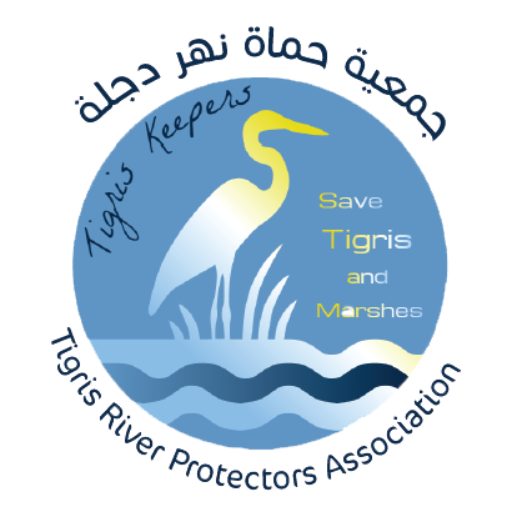
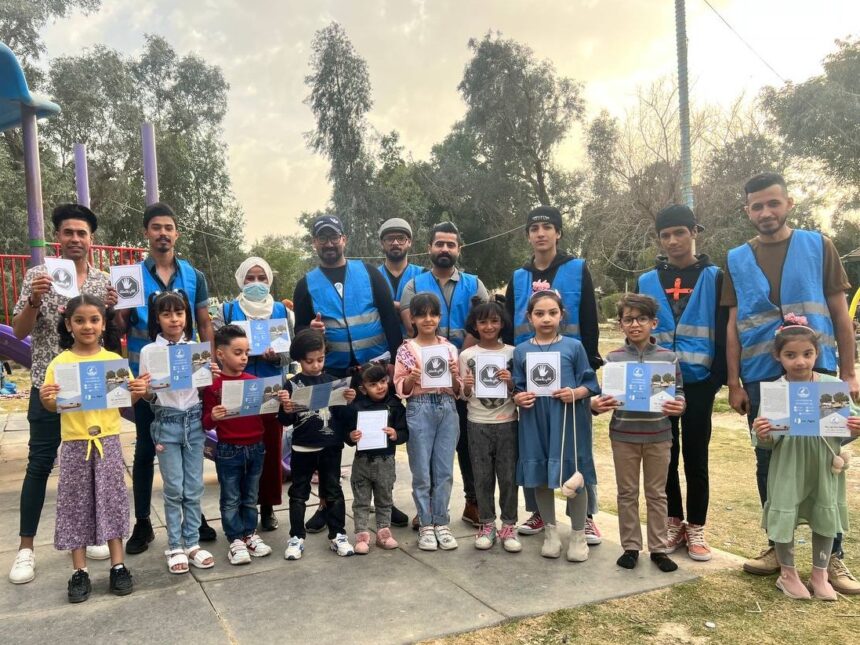
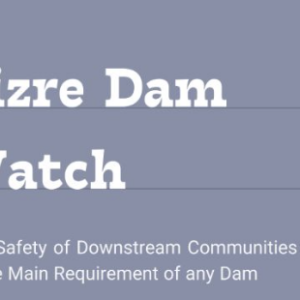
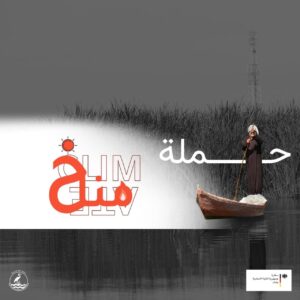
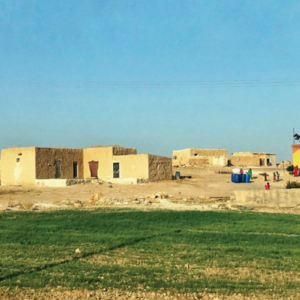
Leave a Reply